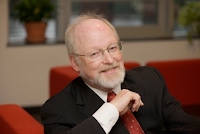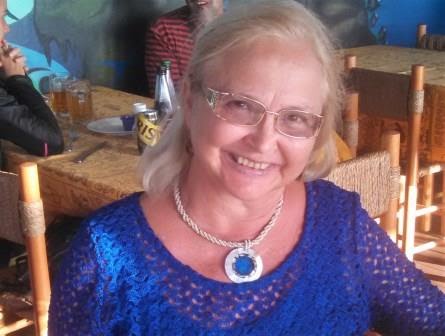ワークショップ A1: 混合研究法で道草を楽しむ
【使用言語:日本語】
混合研究法は今や世界中で行われるようになり、日本において流行の兆しが見える。複雑な現象を解明しようとする研究者や臨床家にとって、混合研究法は魅力的な研究手法に映るが、しかし、これから混合研究法を使おうとする日本人研究者には「意識しにくい」落とし穴があるようにも思われる。私自身、統合の意味するところを理解し、自分の研究を混合研究法デザインに仕立て上げるのに少なからず苦労を重ねてきた。本ワークショップでは、1)化学療法におけるインフォームド・コンセント観察研究(MORE-ICプロジェクト)の概要を解説し、2)このプロジェクトを通して経験した混合研究法のメリットとデメリットを述べ、3)混合研究法の初学者には「意識しにくい」落とし穴を示したい。当日は、参加者の皆さまと混合研究法についてお話しできることを楽しみにしています。
八田太一 (京都大学)
京都大学iPS細胞研究所 上廣倫理研究部門 上廣特定研究員。早稲田大学教育学部(生物学)を卒業後、ヒトES細胞が樹立された当時、再生医療の研究を求めて京都大学大学院に進学。そこで基礎研究と臨床応用におけるインフォームド・コンセントに関心を寄せ、生命倫理へと研究分野を変更。その後、博士課程にて化学療法におけるインフォームド・コンセント観察研究(MORE-ICプロジェクト)に取り組み、心理尺度の開発、参与観察、混合研究法を実施した。
【使用言語:日本語】
複線等至性アプローチ(TEA)は、歴史的、文化的、社会的文脈における理解を人のライフについて、新しい質的研究法で、記号論的にアプローチするValsiner(2001,2003 )の文化心理学に由来しています(サトウ、2016)。TEAは、複線径路等至性モデル(TEM),歴史的構造化ご招待(HIS),発生の三層モデル(TLMG)の3つのコンポーネントから構成され、質的研究主導型混合研究法(QDMM)の1つの形態としても注目されています(抱井、2015)。
本ワークショップの目的は以下の2点になります。
第1に、TEAの最新のトピックも含めて、TEMの代表的な概念を説明し、分析手続きについて解説します。
第2に、参加者のみなさんが事前に作成したミニレポートをもとに、TEM図を作成し、分析します。
自らのリサーチクエスチョンに向き合い、混合研究法における求められる質的研究の分析手続きの実際について一緒に学んでいきましょう。
本ワークショップの参加者は、ミニレポートの提出をお願いします。
参加に際し、準備していただきたいミニレポート:400字~600字程度(形式は自由)コピーして2部
テーマ: 「私はなぜこのワークショップに参加しようと決意したのか」
参考文献:
- 安田裕子・滑田明暢・福田茉莉・サトウタツヤ(編) 2015 ワードマップTEA理論編―複線径路等至性アプローチの基礎を学ぶ 新曜社.
- 安田裕子・滑田明暢・福田茉莉・サトウタツヤ(編) 2015 ワードマップTEA実践編―複線径路等至性アプローチを活用する 新曜社.
廣瀬 眞理子(関西学院大学)
関西学院大学大学院文学研究科博士後期課程単位取得退学。
同大学大学院受託研究員。臨床発達心理士・精神保健福祉士
これまでひきこもり問題に携わるとともに、現在は地域発達支援プロジェクトコーディネーターとして自治体と連携した青年期発達障害者支援のためのプログラム開発及びその実施に従事している。青年期発達障害者およびその家族のための新しい包括的支援モデルを発展させるため混合研究法アプローチをもちいて研究をおこなっている。
【使用言語:日本語】
健康格差が顕在化し、少子高齢化が急速に進む中で、健康の社会的決定要因を考慮した健康・保健・福祉政策の展開や地域包括ケアシステム構築が推進されています。地域づくりやまちづくりと健康・保健・福祉事業を連動させていく流れが生まれてきていると言えます。
多くの行政保健師の方々がこのような事業の評価に苦労されているのを目にしてきました。多分野に渡る多面的かつ、実装される複数の異なるコンテクスト(枠組み、環境、対象集団など)のダイナミクスにより異なる効果を生み得る事業やプログラムの評価には混合研究法がほぼ必須と言えます。
このワークショップでは、混合研究法に基づいて事業などの評価を進めるのに有用なフレームワークRe-AIMを紹介し、受講者の方々に基本的な考え方をつかみとっていただき、活用のモチベーションを高めて帰っていただくことを目的としています。
河村洋子(静岡文化芸術大学)
静岡文化芸術大学 文化政策学部・准教授。
山口県徳山市(現周南市)出身、1998年中央大学法学部卒業後、民間企業勤務を経て、2001年からアラバマ大学バーミングハム校公衆衛生大学院(行動科学専攻)に留学。2003年に公衆衛生学修士(Master of Public Health)、2006年にPhD(in Health Education and Promotion)を取得。帰国後、ベネッセ研究教育開発センター研究員、国立がんセンター(現国立がん研究センター)がん対策情報センターリサーチレジデントを経て、2009年8月から2017年3月まで熊本大学政策創造研究教育センター・准教授。2017年4月より現職。
専門はヘルスプロモーション、ヘルスコミュニケーションで、地域や職域における健康づくり関する実践的な介入研究に取り組む。混合研究法によるアプローチにより、多面的な理解に基づくプログラムやその他の介入方法の開発と評価が主なテーマである。
【使用言語:日本語】
混合研究法は、質的研究と量的研究の両研究方法を組み合わせるハイブリッドなアプローチである。混合研究法は、研究対象をより包括的に理解できるという大きなメリットを有すると共に、扱うデータが多岐に渡ること、及び質的・量的データの統合が複雑であることから、どちらか一方の研究方法を用いた研究と比較して、より膨大な時間を要するというデメリットも持ち合わせる。このため、混合研究はチームを組んで実施される場合も多い。一方で、混合研究法の中でも混合型事例研究は、現場で教育や診療に携わる実践分野の研究者が、対象者との関わりの中で実施ができるために、混合研究法の初学者でも取り組みやすいだけでなく、単独でも実施が可能なアプローチといえよう。加えて、混合型事例研究では、教育や臨床といった現場で教育や臨床の効果とプロセスを主観的・客観的に分析することができるため、対象者との対話の中から対象者への理解を深めることだけでなく、実践の改善、及び実践者自身の自己改善をも促す。これらも、混合型事例研究が実践家に適した研究アプローチである理由である。
本ワークショップでは、混合研究法のなかの混合型事例研究を紹介する。このために、まずは混合研究法デザインの類型を概観し、次に混合型事例研究例を紹介する。最後に各参加者が混合型事例研究の研究計画書作成を試みる。
(このワークショップは日本語で行います)
田島 千裕(学習院女子大学)
田島千裕(たじま ちひろ)(Ph.D.)は、学習院女子大学国際文化交流学部准教授。国際基督教大学にて、混合研究法を用いた博士論文を提出したことが、その後も混合研究法を実践するきっかけとなっている。専門分野は、教育学、応用言語学、異文化コミュニケーション。現在は、科研費を取得し、混合研究法を用いて、世界の異なる地域で実施される日本人大学生を対象とした海外語学研修を比較する、教育評価研究に単独で取り組んでいる。2015年に発足した日本混合研究法学会の創立メンバーの一人で、現在同学会理事。
【使用言語:英語】
Fully integrated mixed method studies maximize the potential for meaningful exchange between multiple sources of data to generate a more comprehensive picture of a social phenomenon. This interactive workshop introduces ways to build a mixed method way of thinking into the design of a study through the way a purpose statement and research questions are structured, the sampling procedure is established, analysis is conducted, and unexpected results are explored. Led by a professor who has been teaching graduate level courses in mixed methods research since the mid 1990s, this workshop is targeted to an audience of early career researchers with little or no prior knowledge of mixed methods research practice. Each participant will have the opportunity to write and refine a purpose statement and research questions for a mixed method study.
Learning objectives for the course are to:
- Distinguish between multi-method, mixed methods, and fully integrated mixed method research.
- Identify the major rationales for using a mixed method approach.
- Identify the types of purpose statements that are well suited to a mixed method approach.
- Characterize the qualities of a realistic mixed method dissertation.
- Model different ways to construct research questions for a mixed methods study.
- Provide examples of innovative ways to integrate qualitative and quantitative data through all phases of the research process.
Elizabeth G. Creamer (Virginia Polytechnic Institute and State University)

Elizabeth G. Creamer is professor of Educational Research in the School of Education and an affiliate faculty member in Engineering Education at Virginia Polytechnic Institute and State University in the U.S. She received a BA in English at Northwestern University, a masters in English and Reading Instruction at Colorado State University, and a doctorate from Virginia Tech. An interest in women’s recruitment and success in science and engineering spans Creamer’s career and is reflected in her on-going engagement as an external evaluator on funded projects at multiple universities. She has taught graduate level research methods courses in qualitative and mixed method research, including in an on-line format, since the mid 1990s. She is the author of the recently released textbook, An Introduction to Fully Integrated Mixed Methods Research, which foregrounds strategies for integrating qualitative and quantitative data and analytical procedures throughout all phases of the research process. She is co-editor of an up-coming volume, Methodological Innovation in Mixed Methods Research. Creamer holds the position of secretary of the Mixed Methods International Research Association (MMIRA). Creamer maintains a blog, Mixed Methods Research in the News, which offers a playful looked at how mixed method mindset fuels much of scientific research today.
【使用言語:英語】
This workshop will be for individuals who want to learn the latest advances in mixed methods research that are being widely discussed in the US and around the world. The focus will be on 7 advances that are central to the thinking today. These include advances about the importance of mining databases, developing core and complex designs, creating implementation matrices, and writing mixed methods questions. The approach will be practical and will invite participants to bring to the workshop a one-page sketch of their proposed project (draft title, central question, qualitative data collection, quantitative data collection, and importance of the study) and work on their projects using the 7 advances. Participants should read “A Concise Introduction to Mixed Methods Research” by Creswell (SAGE Publication, 2015) to prepare for this workshop.
John W. Creswell (University of Michigan)

John W. Creswell, Ph.D. is the founder and world-renowned scholar in mixed methods. His 27 books (including new editions) in research methods are used around the world and translated into a dozen languages. He held an endowed professor chair at Nebraska, served as the director of the first Mixed Methods Center in the world, co-founded the Journal of Mixed Methods Research
(SAGE), and he has been a Senior Fulbright Scholar to South Africa (2008) and to Thailand (2012). In 2011 he led a national working group at the National Institutes of Health developing “best practices” for mixed methods research in the health sciences. In spring 2013, Dr. Creswell was a Visiting Professor at Harvard’s School of Public Health and in 2014, he was awarded an honorary doctorate from the University of Pretoria in South Africa. In 2014- 2015 he served as the President of the Mixed Methods International Research Association (MMIRA).
Together with Michael D. Fetters, M.D., M.P.H., M.A., he leads the Michigan Mixed Methods Research and Scholarship Program, which runs workshops and offers consulting services on mixed methods research.
【使用言語:日本語】
本ワークショップは、出版用混合型研究論文をどのように執筆するか、その基礎を学ぶことに関心をもつ保健医療または社会科学の研究者を対象とします。ワークショップでは、インタラクティブな参加型アプローチを用います。トレジャーハンティング・モデルに基づき、参加者は出版された混合型研究論文を読み、優れた混合型研究論文がもつ重要な要素について特定することで、以下の事柄について理解することを目指します。
- 混合研究法デザインを手続きの中に組み込む方法
- 混合研究法デザインの手続きダイアグラムを利用する方法
- 混合型研究の研究設問または目的を見つける方法
- 哲学や理論を混合型研究に結び付ける方法
- 質的・量的研究ストランドの統合と、手続きのタイプを表現する方法
- 質的・量的研究結果を同時に示すジョイントディスプレイを利用する方法
- 研究の質を脅かす脅威を検討する方法
- どのようにそれぞれの研究ストランドが厳密なデータ収集・分析方法を用いているのかを示す方法
- 混合研究法を用いたことで付加された、単一メソッドによるアプローチでは得られなかった価値を明らかにする方法
マイケル・フェターズ(ミシガン大学)
マイケル・フェターズ氏(MD、MPH、MA)は、ミシガン大学家庭医学部教授である。彼はミシガン大学日本語家族健康プログラムを創設し、そのプログラムを指揮している。彼はJournal of Mixed Methods ResearchのCo-Editorである。彼は、家庭医学、医学教育、倫理学、研究方法論などのトピックに関する200以上の学術論文を執筆している。 また彼は、質的研究と混合研究法を用いた国内の研究プロジェクト、および国際的な研究プロジェクトの代表者であり、世界各国で混合研究法に関するワークショップを数多く行ってきた。 2016年秋には、北京保健科学大学の社会科学に関するフルブライト特別チェアーとして、中国、日本、タイにおけるがん治療のコミュニケーションに関する混合研究法を用いた調査を指揮している。彼は、2015年に日本で開催されたMMIRAアジア地域会議の大会委員長を務めた。
抱井尚子(青山学院大学)
抱井尚子(かかい ひさこ)氏(Ph.D.)は、青山学院大学国際政治経済学部国際コミュニケーション学科の教授である。日本混合研究法学会理事長(2015~)。ヘルス関連のコミュニケーションに文化が与える影響や、ヘルスに関する意思決定において批判的思考が果たす役割について関心をもつ。これらのトピックや混合研究法に関する数々の論文や書籍を英語および日本語で出版している。『混合研究法入門-質と量による統合のアート』(2015年、医学書院)は、日本語で書かれた混合研究法に関する最初のオリジナル書籍である。現在は、クレスウェル博士によるAn Concise Introduction to Mixed Methods Research (2015年、SAGE)を翻訳中。混合研究法の学術雑誌Journal of Mixed Methods Research常任査読委員。
【使用言語:英語】
Developments in the use of mixed methods have extended beyond the practice of combining surveys and focus groups. The sophistication of mixed methods designs will be explained and demonstrated through illustrative examples taken from diverse sectors and geographical regions. The examples of mixed methods design will include studies deliberately focused on social transformation and improvement of the quality of life for members of marginalized and oppressed communities. The designs will provide guidance for researchers who wish to link their work in research using mixed methods to the improvement of social and environmental conditions for people in Asia. Mixed methods designs will include effectiveness of interventions and policy research. Participants will have the opportunity to create mixed methods designs using research vignettes for each type of research.
Donna M. Mertens (Gallaudet University)

Donna M. Mertens, Ph.D. is Professor Emeritus at Gallaudet University with a specialization in research and evaluation methodologies designed to support social transformation. She has authored, co-authored, or edited over 15 books relate to research and evaluation methods and human rights, most recently Research and Evaluation in Education and Psychology: Integrating Diversity with Quantitative, Qualitative, and Mixed Methods, Indigenous Pathways into Social Research, Program Evaluation Theory and Practice, and Transformative Research and Evaluation. Her scholarly work focuses on the intersection of research and evaluation with social justice and human rights and is situated within the philosophical assumptions of the transformative paradigm. She taught MA and PhD hearing and deaf students in education, psychology, social work, administration, and international development for 32 years. She has conducted professional development related to transformative mixed methods in many contexts, e.g., the Australasian Evaluation Society in Australia and New Zealand; the African Evaluation Association in South Africa, Niger, and Ghana; the Grupo de Institutos, Fundações e Empresas in Brazil; the World Bank and the Community of Evaluators in India and Nepal; the Sri Lankan Evaluation Association in Sri Lanka; UN Women and Evaluation Partners in Kazakhstan and Kyrgyzstan. Mertens also served as the Editor for the Journal of Mixed Methods Research 2010-2014.
【使用言語:英語】
Onwuegbuzie and Combs (2010) developed an inclusive framework for mixed analyses that incorporates all mixed analysis typologies from the extant literature, including the aforementioned typologies. In this interactive workshop, for new and seasoned researchers, I will demonstrate how utilizing this framework will enable researchers to conduct a more rigorous analysis of collected data by guiding their decisions pertaining to type of data collected, type of analysis appropriate for each data type, and level of data integration—leading to appropriate meta-inferences (i.e., wherein inferences stemming from both the qualitative and quantitative findings are combined into a coherent whole). Attendees will be provided with an exemplar that shows how this framework was used to drive the mixed analysis. Further, I will provide meta-frameworks, frameworks, and heuristics for selecting and applying data-analytic approaches (e.g., concurrent mixed analyses, sequential mixed analyses), methods (e.g., quantitizing, qualitizing), and techniques (e.g., narrative profile formation) and validating, interpreting, and reporting results in mixed methods research studies. Finally, I will provide published examples and illustrate applications of software (e.g., SPSS, QDA Miner) that integrate a variety of text analysis and statistical techniques.
Anthony (Tony) J. Onwuegbuzie (Sam Houston State University)
Anthony J. Onwuegbuzie is professor in the Department of Educational Leadership at Sam Houston State University, where he teaches doctoral-level courses in qualitative, quantitative, and mixed research. Further, he is Distinguished Visiting Professor at the University of Johannesburg. His research areas primarily involve social and behavioral science topics, including disadvantaged and under-served populations such as minorities, children living in war zones, students with special needs, and juvenile delinquents. Additionally, he writes extensively on an array of qualitative, quantitative, and mixed methodological topics.
With a current h-index of 74, Professor Onwuegbuzie has secured the publication of more than 400 works, including more than 300 journal articles, 50 book chapters, and 5 books. Additionally, he has delivered more than 900 presentations and 200 methodological workshops worldwide and more than 50 keynote addresses across six continents. He has received numerous outstanding paper awards. Professor Onwuegbuzie is former editor of Educational Researcher (ER), being part of the Editor team (2006-2010) that secured a first impact factor of 3.774. Currently, he is editor-in-chief of the mixed methods journal, International Journal of Multiple Research Approaches, and a co-editor of Research in the Schools. Further, Professor Onwuegbuzie has received national and international recognition for his teaching. Also, over the last decade, he has secured more than 30 grant awards.
Many of Professor Onwuegbuzie’s articles have been extensively read and cited. For example, his mixed research article published in ER not only has been the most read for the past 10 years, and currently is one of the most cited ER articles ever. Also, one of his mixed research articles published in the Journal of Mixed Methods Research (JMMR) is the most cited JMMR article ever. He is also the current president of the Mixed Methods Research International Association. His overall goal is to be a role model for beginning researchers and students worldwide.
【使用言語:英語】
This interactive workshop will introduce key concepts of community-engaged research and will demonstrate how to apply these concepts to develop participants' capacity to conduct a Photovoice project. Photovoice is a participatory-action, mixed-method project in which participants take photographs on a particular theme and then discuss them in small groups. The photographs and the group data thus help to identify community issues on which participants wish to work to produce change. Photovoice is recommended for participatory need and resource assessments, participatory and empowerment evaluations, and for reaching stakeholders and policy-makers who can use the findings to develop policies to address social and health problems. The workshop will include: Photovoice exhibit and discussion; how to develop Photovoice projects with vulnerable populations, including engagement, retention, class differences, and ethical and other considerations; the structure of Photovoice sessions; and the advantages and limitations of Photovoice as a mixed method. The exhibit includes photographs from members of a Community Collaborative Research Board involved in scientific research regarding the intersection of HIV, substance use and incarceration.
Rogerio Pinto (University of Michigan)
Rogério Meireles Pinto, LCSW, PhD. is Associate Professor at the UM School of Social Work and Associate Editor, Journal of Mixed Methods Research. He is interested in the integration of mixed methods in cross-sectional and longitudinal implementation research in the United States, Brazil and Spain. He uses mixed methods to study the impact of interprofessional collaboration on the delivery of evidence-based services, particularly to women and others most affected by HIV and substance abuse. His research, funded by the National Institute of Mental Health, focuses on the diffusion of HIV prevention and other related evidence-based services.